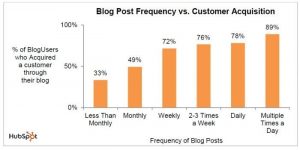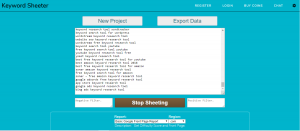In order to streamline their business operations and make their customer service more effective, many businesses have invested in a Customer Relationship Management (CRM) system. The CRM is a software tool or platform that empowers you to organize customer data, automate certain interactions, and help move prospects down the sales funnel (among other useful features). Of course, rolling out and then implementing a CRM system may not be your cup of tea. You may have a full plate already. Maybe you can’t personally invest any more time, energy, or resources into making your CRM work. If that’s the case, have you considered enlisting the aid of a CRM consultant?
Let’s talk about some key reasons why you may decide to go this route. And discuss some different kinds of CRM consultants that you may want to bring onboard.
Why You Should Hire a CRM Consultant
It can be tricky to select, implement, and optimize a CRM system. There is a ton of moving parts. Even one misstep can lead to increased friction across the board for your employees and customers. Put simply, hiring a CRM consultant can help you to obtain the largest possible return from your investment. Here are just a few reasons why that’s the case:
They can help you to select the right CRM platform.
CRM platforms vary widely in terms of features, functionality, and ability to integrate with existing systems. An experienced consultant can identify the specific business needs that your new CRM should fill. They help you to select one that aligns with those needs.
They can help you to maximize your ROI more quickly.
It may cost more upfront to hire an outside consultant than it would to assign the task of implementing a new CRM to your internal team. However, there’s a trade-off: It may take much longer for your employees to optimize CRM usage than it would for a team of experts. The point is, external consultants can help you to unlock the full potential of your CRM software quickly and efficiently.
They can train your team members to use the new CRM effectively.
Your CRM consultant can help you to develop a workable training program for your employees. One that’s progressive, goal-oriented, and effective. Your consultant helps you to roll out the program. He or she can also audit the program in terms of its curriculum, delivery methods, scheduling, etc.
They can help you to customize your CRM according to business needs.
Your basic CRM package may come with a wide array of helpful features. However, if you want to get the biggest “bang for your buck” in terms of functionality, odds are you’ll have to customize your CRM system to fit the specific needs of your business. This customization initiative may include add-ons, integrations with 3rd-party applications, and other technical solutions. An experienced CRM consultant can take it all in stride. They make sure that your platform does exactly what you need it to do.
They can expose your team to CRM best practices.
A good auto mechanic is more than a person who owns a garage and keeps a framed piece of paper on the wall. Exceptional mechanics have years of experience to draw from. They know the best ways to diagnose and fix automotive issues, whether big or small. In the same way, CRM consultants have more than a technical certification in your system; they have years of experience in leveraging CRM platforms to provide workable business solutions in the real world. The fact that they can coach your team on CRM best practices is a huge advantage for your company.
They know CRM “secrets.”
CRM consultants may not be wizards. But they often do know whether your CRM system has free, hidden functionalities that you could access upon request. (Call them “CRM Easter eggs.”) Of course, even a CRM’s well-known features may be difficult to understand or manage without the proper training. However, a consultant can help your team to figure out which functionalities to prioritize, and how to put them to the best possible use.
They may have template collections that will speed up your CRM implementation process.
Many CRM consultants have pre-developed templates that they can “plug into” your platform for customization purposes. These time-saving template collections can help your CRM system to get up and running more quickly than developing from the ground up.
They can recommend 3rd-party applications for your CRM “network.”
In some cases, a single CRM system may not be sufficient to handle all of your business needs. You may need to use a “network” of interconnected CRM applications to streamline and optimize your business processes. If that’s your situation, then a CRM consultant can prove to be an invaluable resource. He or she can help you to select the right 3rd-party apps to incorporate into your CRM “ecosystem,” whether they’re focused on email marketing, customer data compilation/organization, legacy system integration, or anything else.
Business & Finance Articles on Business 2 Community
(35)






